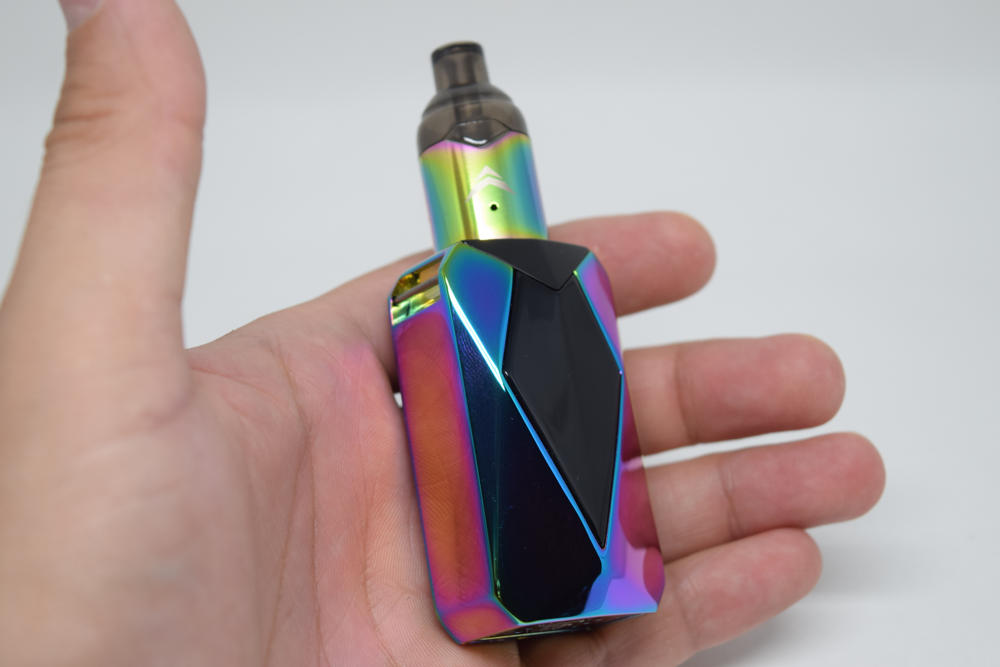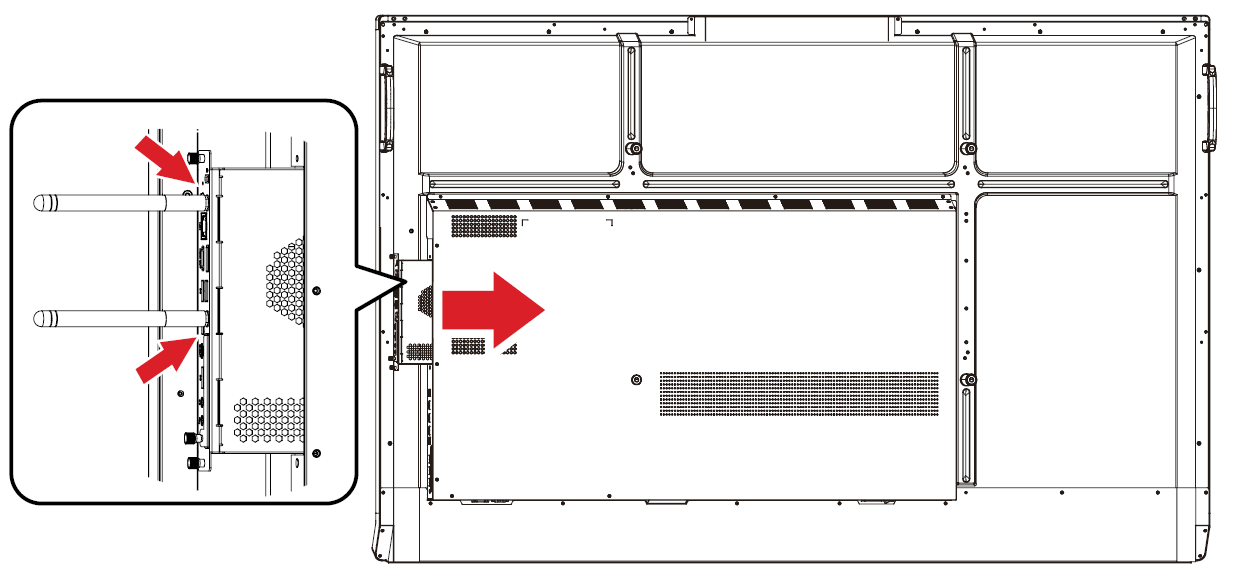Comprehensive RemoteIoT VPC Review: Your Ultimate Guide To Secure And Scalable Networking
In today's digital age, remote networking and cloud-based infrastructure are crucial for businesses aiming to enhance their operational efficiency. RemoteIoT VPC has emerged as a game-changer in this domain, offering robust solutions tailored for enterprises and developers alike. This review delves deep into the features, advantages, and potential limitations of RemoteIoT VPC, helping you make an informed decision.
As more organizations transition to remote work setups, the need for secure and scalable virtual private clouds (VPCs) has never been greater. RemoteIoT VPC stands out as a reliable option, providing users with the tools necessary to manage their network infrastructure effectively.
This comprehensive review will walk you through everything you need to know about RemoteIoT VPC, including its architecture, pricing, and real-world applications. Whether you're a tech enthusiast, IT professional, or business owner, this guide is designed to provide valuable insights into RemoteIoT VPC's capabilities.
Read also:Unveiling The Mystique Of Alina Angel A Rising Star In The Spotlight
Table of Contents
- Introduction to RemoteIoT VPC
- Understanding RemoteIoT VPC Architecture
- Key Features of RemoteIoT VPC
- Security Measures in RemoteIoT VPC
- Scalability Options
- Pricing Plans and Packages
- Real-World Use Cases
- Comparison with Competitors
- Potential Limitations
- Conclusion and Final Thoughts
Introduction to RemoteIoT VPC
RemoteIoT VPC is a cutting-edge virtual private cloud solution designed to meet the demands of modern businesses. It allows organizations to create isolated network environments within the cloud, ensuring data security and operational flexibility. The platform leverages advanced technologies to provide users with seamless connectivity and robust performance.
Why Choose RemoteIoT VPC?
One of the primary reasons businesses opt for RemoteIoT VPC is its ability to integrate effortlessly with existing infrastructure. Whether you're managing IoT devices, hosting applications, or securing sensitive data, RemoteIoT VPC offers a versatile platform that adapts to your specific needs.
Additionally, RemoteIoT VPC is known for its user-friendly interface, making it accessible even to those with limited technical expertise. This ensures that businesses can focus on their core operations without being bogged down by complex IT challenges.
Understanding RemoteIoT VPC Architecture
The architecture of RemoteIoT VPC is built on a foundation of security, scalability, and flexibility. By employing a multi-layered approach, the platform ensures that all aspects of network management are covered, from data encryption to access control.
Key Components of the Architecture
- Subnets: RemoteIoT VPC allows users to divide their network into smaller subnets, enhancing security and resource allocation.
- Gateways: Internet and virtual private gateways facilitate seamless communication between the VPC and external networks.
- Security Groups: These act as virtual firewalls, controlling inbound and outbound traffic at the instance level.
- Route Tables: Define how traffic is directed within the VPC, ensuring efficient data flow.
Key Features of RemoteIoT VPC
RemoteIoT VPC boasts an impressive array of features that cater to a wide range of use cases. Below are some of the standout capabilities:
1. Advanced Network Segmentation
With RemoteIoT VPC, users can segment their networks into distinct subnets, allowing for greater control over resource allocation and security.
Read also:Barron William Trump Diagnose The Story Behind The Spotlight
2. Seamless IoT Integration
The platform is optimized for IoT devices, enabling businesses to manage and monitor their connected devices efficiently.
3. Robust Monitoring Tools
RemoteIoT VPC provides users with comprehensive monitoring tools, allowing them to track network performance and identify potential issues in real-time.
Security Measures in RemoteIoT VPC
Security is a top priority for RemoteIoT VPC, and the platform employs several measures to safeguard user data. These include:
Data Encryption
All data transmitted within the VPC is encrypted using industry-standard protocols, ensuring that sensitive information remains protected.
Access Control
RemoteIoT VPC implements strict access control policies, allowing administrators to define user roles and permissions with precision.
Intrusion Detection
The platform includes advanced intrusion detection systems that monitor for suspicious activity and alert administrators in real-time.
Scalability Options
One of the standout features of RemoteIoT VPC is its scalability. The platform can grow alongside your business, accommodating increasing demands without compromising performance.
Horizontal Scaling
Users can add more instances or resources to their VPC as needed, ensuring that their network can handle increased loads.
Vertical Scaling
RemoteIoT VPC also supports vertical scaling, allowing users to upgrade existing resources to meet changing requirements.
Pricing Plans and Packages
RemoteIoT VPC offers flexible pricing plans to suit businesses of all sizes. Below is an overview of the available options:
Basic Plan
Ideal for small businesses and startups, the Basic Plan provides essential features at an affordable price.
Pro Plan
Suitable for mid-sized enterprises, the Pro Plan includes additional features such as advanced monitoring and enhanced security.
Enterprise Plan
Designed for large organizations, the Enterprise Plan offers the full suite of RemoteIoT VPC features, along with dedicated support and customization options.
Real-World Use Cases
RemoteIoT VPC has been successfully implemented in various industries, demonstrating its versatility and effectiveness. Some notable use cases include:
Retail Industry
Retailers use RemoteIoT VPC to manage their point-of-sale systems and customer data securely, ensuring compliance with industry regulations.
Healthcare Sector
Hospitals and clinics rely on RemoteIoT VPC to store and share patient information safely, while maintaining HIPAA compliance.
Manufacturing Sector
Manufacturers utilize RemoteIoT VPC to monitor and control IoT-enabled equipment, optimizing production processes and reducing downtime.
Comparison with Competitors
When compared to other VPC solutions, RemoteIoT VPC stands out for its ease of use, advanced security features, and scalability. Below is a comparison table highlighting key differences:
| Feature | RemoteIoT VPC | Competitor A | Competitor B |
|---|---|---|---|
| Security Features | Advanced | Standard | Basic |
| Scalability | High | Moderate | Low |
| User Interface | User-Friendly | Complex | Simplistic |
Potential Limitations
While RemoteIoT VPC offers numerous advantages, there are a few limitations to consider:
Learning Curve
For users unfamiliar with cloud-based networking, there may be a learning curve associated with mastering RemoteIoT VPC's features.
Cost
Depending on the scale of your operations, the cost of implementing and maintaining RemoteIoT VPC could be significant.
Conclusion and Final Thoughts
RemoteIoT VPC is a powerful solution for businesses looking to enhance their network infrastructure. With its robust security measures, scalability options, and user-friendly interface, it offers a compelling value proposition for organizations across various industries.
We encourage you to explore RemoteIoT VPC further and consider how it can benefit your business. Don't forget to leave your thoughts and questions in the comments section below. Additionally, feel free to share this article with your network and check out our other guides for more insights into the world of technology.
Data Source: RemoteIoT VPC Official Website


